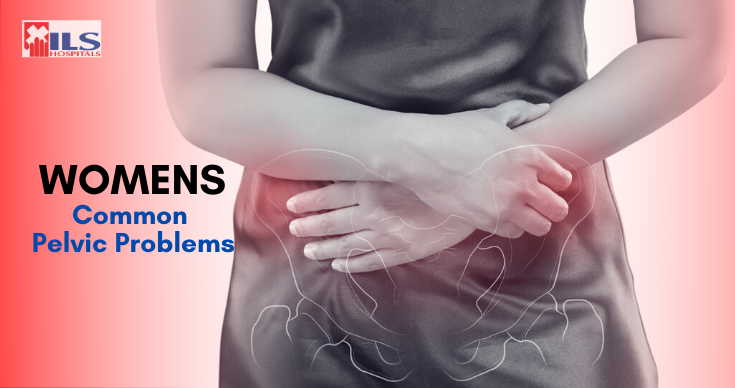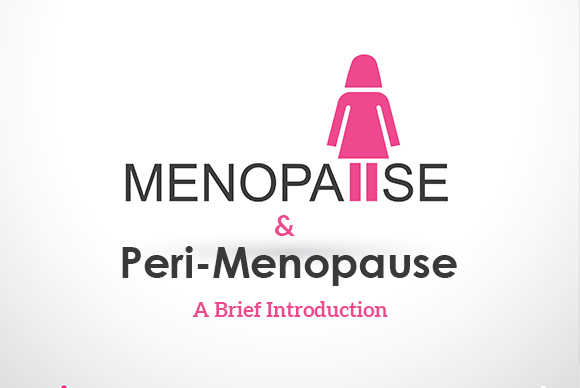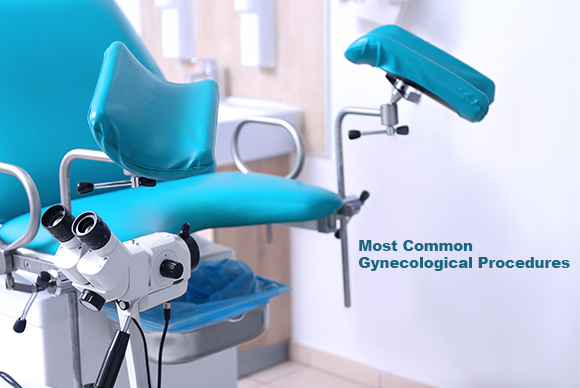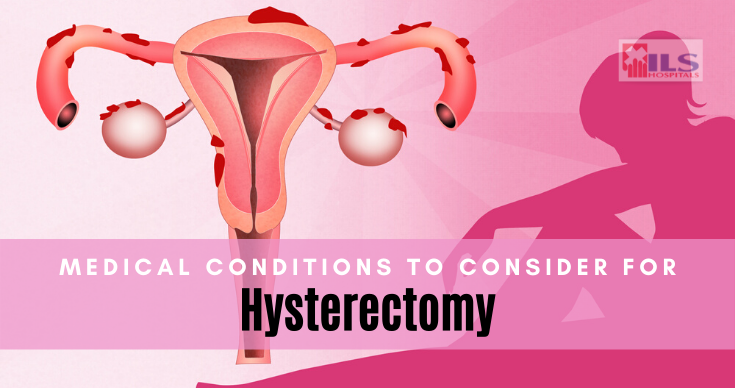How To Have A Healthy Pregnancy During This Covid-19 Situation
COVID-19 pandemic has become a medical emergency in all over the world. It is a very difficult time for all of us. It is more difficult for women who are pregnant during this crisis. But as ILS Hospitals always says, Do not Panic and Stay Alert, following this is the only remedy during this anxious situation.
Today ILS Hospitals, one of the best hospitals in Kolkata and Agartala will suggest the would-be mothers some tips to have a healthy pregnancy during this COVID-19 situation.
Eat a diet full of nutrients
A nutritious diet is the ultimate panacea for pregnant women. You need to consume healthy foods for your baby’s growth and development. Eat fruits, vegetables, legumes, lentils, eggs, seafood, chicken, dry fruits, etc.
Drink plenty of water
Do not ignore the importance of hydration. Drink plenty of filtered water every day. Use a hydration or water reminder app on your smartphone if you constantly forget to drink water.
Take an ample of rest
Your body is responsible for carrying two individuals. Surely, your body is dealing with a lot right now. To compensate for that, take a proper amount of rest every day.
Stay hygienic
Practice good hygiene at all rates. Wash your hands properly and frequently with a good liquid handwash. Use hand sanitizer with 70-90% alcohol and tissue papers while coughing and sneezing and dispose them off at once in a closed bin. Wear a mask and disposable gloves if you have to go out for any medical emergency and live in a well-sanitized environment.
Have a good mental health
Due to this long home quarantine, you might find yourself anxious and depressed which can affect your unborn baby’s well-being as well. Do not stress, watch less news, read good books, play board games with your husband or other family members, watch informative videos and practice meditation or light doctor recomended exercise.
Stay happy and stay safe at home. Visit a good obstetrician-gynaecologist for any medical emergency. ILS Hospitals in Agartala and Kolkata is always present to help you out.
5 Common Pelvic Problems Faced By Many Womens
Being a woman is not easy. Women have to deal with many gynaecological issues during their entire life. Here we will tell you about 5 common pelvic problems faced by a majority of women.
1. Urinary Tract Infection (UTI):
A common gynaecological problem faced by many women is Urinary tract infection or UTI which can infect any part of the urinary system (bladder kidneys, ureters and urethra). UTI is generally caused by bacteria but in some cases, viruses and fungi can also contribute to this situation. The symptoms of UTI are as follows:
-
Hematuria
-
Urinary urgency
-
Little or no urine
-
Foul-smelling urine
-
Dysuria or painful urination
-
Fever and chills
-
Pelvic pain.
Treatment involves antibiotics, antivirals, antifungal or antimycotic medication (depending on the causative agent).
2. Uterine Fibroids:
Uterine Fibroids are non-cancerous tumours that develop in the uterus usually during the childbearing years of a woman. They can be caused due to hormonal changes, family history of fibroids, obesity and early onset of puberty. The symptoms of fibroids depend on the size and number of tumours. Some symptoms associated with fibroids are as follows:
-
Heavy and prolonged menstruation
-
Severe menstrual cramps
-
Constipation
-
Frequent urination
-
Pain during sexual intercourse
-
Urinary retention or inability to empty the bladder
-
Pelvic pain and discomfort
-
Backache
-
Bloating
-
Abdominal swelling
-
Anaemia
-
Problems in conception and labour
-
Recurrent miscarriage.
Treatment: Medication and surgery including the advance minimally-invasive procedures.
3. Ovarian cyst:
Ovarian cysts are fluid-filled sacs that originate in the ovaries. They can occur because of hormonal problems, pregnancy, endometriosis, severe Pelvic inflammatory disease (PID). Ovarian cysts are painless and cause no major symptoms but can create problems if ruptured. Many times cysts go away on their own and don’t causes any symptoms. Some symptoms of this condition are as follows:
-
Nausea and Vomiting
-
Bloating
-
Severe pain in the abdomen
-
Pain and tenderness in the breasts
-
Abnormal and irregular bleeding
-
Severe pelvic pain
-
Dyspareunia or pain during sex.
Treatment: Medication, ovarian cystectomy, oophorectomy and hysterectomy (laparoscopic procedures can be performed).
4. Endometriosis:
Endometriosis is a condition in which the uterine lining, the endometrium, grows outside the uterus. You can get endometriosis if you suffer from retrograde menstruation and have problems in the immune system. Endometriosis can also be caused by genetics, hormones and certain surgeries. The symptoms related to endometriosis are as follows:
-
Dysmenorrhea or painful periods
-
Pain during or after sexual intercourse
-
Painful urination
-
Heavy intermenstrual bleeding
-
Constipation or diarrhoea
-
Bloating
-
Nausea
-
Infertility.
Treatment is either medication or surgery.
5. Pelvic Inflammatory Disease:
PID is a bacterial infection that affects the female reproductive organs, like uterus, fallopian tubes, and ovaries. The sexually transmitted bacteria enters from the vagina and cervix and makes its way to the uterus. The symptoms associated with PID include:
-
Pain in the lower abdomen
-
Vaginal discharge
-
Pain and bleeding during sexual intercourse
-
Fever
-
Pain and burning sensation while urination
-
Irregular menstruation.
Treatment includes antibiotics.
Visit ILS Hospitals in Kolkata and Agartala for a complete treatment from the best gynaecologists.
Menopause and Peri Menopause – A Brief Introduction
Menopause is the natural cessation of the menstrual cycle in women. It marks the termination of reproductive age. The ovaries are reproductive glands which store eggs and release them one by one each month through the fallopian tube. It also releases the female hormones estrogen and progesterone. Altogether it controls the menstrual cycle and ovulation cycle, both contributing towards natural conception. Gynecologist defines menopause as the phase when the ovaries stop producing the same.
Read more – Hormonal Issues Faced By Women After Menopause
In general, it occurs in the late 40s to early 50s and gives an indication for a few months (sometimes even years) before it. However, it can also happen promptly due to surgical removal of ovaries or uterus or due to any illness. Peri-menopause, on the other hand, is the natural phase that begins 3-4 years before the menopause, but in many cases, it can onset even from the 30s. Women can still conceive and give birth successful while being in peri-menopause.
Several women experience some mild to severe discomfort and annoying symptoms during peri-menopause and menopause.
- A sudden, brief sensation of warmth all over the body, more commonly known as hot flashes
- Vaginal dryness and discomfort during sex
- More frequent urination or the urge to do so
- Persistent insomnia or interrupting sleep cycles
- Mood swings, that might also include periodic or unpredictable depression
- Temporary memory lapse, difficulty in concentration
- Night sweats or sudden cold flash
- Much heavier or lighter, or irregular periods
- Breast tenderness or change in size
- Change in Premenstrual syndrome
- Weight gain along with pain in joints and muscle
- Losing interest in intimacy
- Hair loss
These systems are the indication of ovaries producing less estrogen. In case any women encounter 3 or more of these symptoms for about 3-4 months and is in her late years of childbearing age (or even during), they are highly recommended to seek a gynecologist for a detailed investigation.
Menopause is NOT a disease and cannot be avoided. It is a natural, obvious phase that will onset and eventually be over. Peer to peer talk is quite helpful for most women and so is having awareness related to the changes during menopause. However, menopause comes as a hard time for many women. It is crucial to seek treatment in case the symptoms bother. At ILS Hospitals, our expert gynecologists offer extensive treatment, help, and guidance for women going through the phases of menopause.
Most Common Gynecological Procedures
Gynecological conditions are quite common and thankfully the modern medical science can address most of them effectively. While some can be treated effectively with topical medication, some can be evaluated through non-invasive techniques, but for other condition, it becomes inevitable to use invasive techniques. Most of these procedures (both invasive and non-invasive) are carried out by expert gynecologists and obstetricians in maternity clinic and hospitals.
Here we list out some common gynecological procedures.
Dilation And Curettage
More commonly known as D & C, it is a procedure in which the doctor dilates the cervical cavity in order to remove the lining of the uterus through curettage and extract it out of the cavity through suction. It is used to diagnose any polyps or abnormal growth in the cervical cavity and it is also done to terminate any molar pregnancy and remove the fetal tissues completely after a miscarriage.
Pap Smear
This gynecological procedure should ideally be availed by every woman after the childbearing age and onwards. This procedure including extracting some tissues from the cervix using a speculum. Going for routine Pap smear can help with early detection of any malignancy in the cervix.
Breast Ultrasound
Even though breast cancer is quite common, having lumps in the breast tissue is quite common as well. Whether or not it has malignant growth, can be evaluated by ultrasonography in its original stages. A tumor that keeps growing along with warning signs like nipple discharge and pain, should be diagnosed further.
Hysteroscopy And Hysterectomy
Hysteroscopy is a non-invasive diagnostic procedure to evaluate the presence of any uterine condition. It can also offer useful insights like locating an IUD, abnormal tissue growth, evaluate reasons for repeated miscarriages.
Hysterectomy is the surgical procedure to remove the uterus if it is needed to ensure better health of the patient. Though is sound scary, it is becoming quite common these days and as per gynecologists, they are safe as well if availed form a quality healthcare provider.
Cervical Cryosurgery
Polyps and tumors in the cervix are quite common these days. Cervical cryosurgery is done for removing the tumors that do not resolve on its own. This procedure uses the cryogenic technique to freeze a section of the cervix and remove pre-cancerous cells from the lining of the cervix.
In case you need to undergo any such gynecological procedure or looking for an expert opinion to consider the same, get in touch with our highly experienced gynecologist and obstetrician at ILS Hospitals.
Hormonal Issues Faced By Women After Menopause
In this forever changing the world, ‘change’ is the only constant. It is particularly effective when aging is considered. Even though many illnesses keep surfacing through any age, some conditions strike due to aging. Menopause is one such condition that can cause many problems for women going through this stage. Menopause is the transition that marks the end of the reproductive age of a woman.
Today, we will talk about the hormonal issues faced by women after menopause and what needs to be done to address them, as per gynecologists.
There are two particular female hormones, namely estrogen and progesterone in the body. The overall balance and level of these hormones regulated and influence the menstrual cycle and fertility cycle. Their level decreases significantly during the menopause and as a result, it affects the overall health severely. For many women, these effects stay only for a short period of time and for many it stays effective for many years to come.
Symptoms Of Post-Menopausal Condition
Some of the most experienced symptoms of menopause are as follows-
- Irregular Periods Or Spotting
- Mood Swings Without Any Particular Reason
- Hot Flash Or Night Sweats
- Insomnia
- Tenderness And Lethargy
- Brain Fog And Feeling Out Of Focus
- Lack Of Interest In Intimacy
- Experiencing Pain Or Dryness In Intimate Regions
Many women become more susceptible to other conditions such as weight gain, osteoporosis, cardiac ailments, etc. However, the most severe effects often constrain in the mind and require long term medical care.
What Is To Be Done To Address It?
As per many studies, the emotional turmoil is more prevalent among women in western countries, as menopause is considered as a sign of aging. Thankfully, in southern Asian countries, like in India, not many women severely suffer (emotionally) due to menopause, as socially and physiologically, aging often is considered as a mark of wisdom. Though many women find this transition quite easy to deal with, gynecologists acknowledge this as a medical condition and advise to seek treatment in case one is struggling with any discomfort.
Our expert Gynecologist offers effective treatment to the women dealing with the postmenopausal syndrome. Often medication is adequate to deal with the physical symptoms, however, for the mental and behavioral ones, they can also recommend therapy. Moreover, as mentioned earlier that menopause brings many secondary conditions, as a likely scenario, so it is crucial for post-menopausal women to keep their overall health in check as well.
Why Women Should Undergo Regular Health Checkup
“It is hard to be a woman. You must think like a man, act like a lady, look like a young girl and work like a horse.”
Being a woman is indeed quite challenging. Amidst the daily hard life, most women tend to ignore their own health. However, this is a poorly thought and executed habit that often ends up badly. Our expert gynecologists and obstetricians always remind people to prioritize their own health first, before prioritizing their family or their career.
Some Illnesses Affects Women Exclusively
Due to several anatomical and biological factors, some illness affects only women, such as gynecological cancers, postpartum depression and some complications due to hormonal imbalance etc. Moreover, many illnesses are more prevalent among women, such as heart diseases, breast cancer, osteoporosis etc. In either way, it calls out for women to take extra care of themselves.
Enduring Symptoms Does ‘No Good’
Many women, particularly living in rural and semi-urban places often encounter some medical discomfort (often related to gynecological health), but sadly they keep enduring it, until the time, it becomes unbearable. The reasons are mostly due to some taboo or financial constraint. Our expert gynecologists and obstetrician encounter such cases regularly and they strictly advise against it. Taboo should have no place to interfere with one’s health and life also treating most conditions in its early stages are often quite affordable (as compared to later stages, which requires extensive treatment and surgery).
Always Remember – Timely Treatment Makes Huge Difference
No matter how complex any condition is, it is often possible to resolve it better, if they are treated on time. During the early stages, most medical conditions can be addressed effectively with mild treatment approaches. Things start to complicate when the condition left undiagnosed (and thereby untreated) for a prolonged period of time. Needless to say, the best way to ensure timely treatment is periodic screening.
At ILS Hospitals we thrive to offer every woman, a complete health care solution. Keeping this in mind, we have designed the Well Women Check Up package that offers the following screenings:
- Complete Haemogram with ESR
- Fasting Blood Sugar
- PAP smear
- Thyroid Profile
- Urine R/E
- USG Breast Screening for female below 40 yrs
- Chest X-Ray PA View
- USG Whole Abdomen screening
- ECG
We understand that it is often difficult for many individuals to draw meaningful conclusions from the reports. Thus, we offer a Gynecologist Consultation with this package. Ensure a healthy life ahead by availing this health package.
Visit us today to book your package.
A Brief Introduction To MIGS (Minimally Invasive Gynecological Surgery)
Today, we live in the advanced medical era when we have numerous approaches to gynecological treatment. We have powerful drugs and injections that can offer excellent treatment for many medical conditions, however, for some illness and condition, having the need for surgery is irreplaceable. Even though traditional open surgery has an immense contribution towards overall healthcare, it does have several complications associated with it as well. Thankfully, laparoscopic surgery has emerged to offer the best results in surgical till date. So, let’s have a brief introduction to Minimally Invasive Gynecological Surgery (MIGS).
As the term clearly indicates, MIGS is a gynecological procedure carried out through a minimal incision, unlike the open surgical technique where the procedures are executed by making a large incision near the lower abdomen.
Procedure of MIGS
The MIGS initiates by making a few minute incisions, (as small as 1/8th of an inch) near the belly button. Through these orifices, the doctor inserts some carbon dioxide gas to create a working space for the operation.
A thin instrument called the laparoscope is inserted inside the cavity along with a camera, cold light source, and other necessary equipment. The camera capture the real-time visuals of the cavity. Along with the movement of the laparoscope, the surgeon carries out the procedure effectively and then the instruments are removed after completion.
Advantages of MIGS Over Open Surgery
The benefits of laparoscopic gynecological surgery are the same as that of any laparoscopic surgery. These are as follows-
- Better Aesthetics Due To Much Lesser Scarring
- Lesser Risk Of Surgical Complications Such As Bleeding, Clotting, Infection
- Lower Chances Of Need For Blood Transfusion
- Much Shorter Hospitals Stay
- Quicker Resume Of Daily Life Activities
These benefits make it a more preferred surgery technique and needless to say, it is substituting the traditional open gynecological surgery significantly.
Scope of MIGS
Some of the most common minimally invasive gynecological procedures that are carried out are as follows-
- Laparoscopic Hysterectomy And Hysteroscopy
- Laparoscopic Myomectomy
- Microlaparoscopic Pain Mapping
- Laparoscopic Cerclage Placement
- Removal Of Ovarian Cysts Or Ovaries
- Removal Of Fallopian Tube Devices
Apart from performing surgeries, the minimally invasive technique can also be used to carry out other medical procedures such as diagnostic investigation and gynecological biopsy etc. or to evaluate the extent of any illness or effectiveness of any treatment.
At ILS Hospitals, we offer extensive treatment for any gynecological and obstetrics condition. Our expert gynecologists and obstetricians offer the best treatment along with the advanced gynecological procedures.
Check Out The Medical Condition When Hysterectomy Is Required
The human body, its organs, and the organ system is a complex creation of nature. Each organ has its own set of function and significance. However, due to many complications, it might become important to surgically remove either a part or the entire organ. The uterus is the internal organ that plays a crucial role in pregnancy and menstrual cycle of women. Surgical removal of the uterus is called hysterectomy. Expert gynecologist and obstetrician recommend a hysterectomy for various reasons. Let’s understand what conditions calls out for the need of a hysterectomy.
1. Heavy Menstrual Bleeding
Some women experience severe bleeding during the monthly cycles up to an extent that it starts affecting their daily life. In such cases, hysterectomy offers a permanent solution as post surgery, the menstrual cycle ceases to continue. However, often it is availed only by the women who no longer wish to have children.
2. Uterine Or Cervix Cancer
Any cancer is a deadly medical condition that requires effective treatment on time. For any cancer, surgical removal of the site of malignancy is the best treatment and the same holds true for the gynecological cancers as well.
3. Endometriosis
The uterus lining tissues sometime might grow outside the uterus and spread into nearby organs such as a fallopian tube or other pelvic or abdominal organs. A total hysterectomy is considered when other medical approaches fail to get any effective results.
4. Fibroids
Uterine tumors, even if benign in nature, cause many complications. Pain, bleeding, and anemia is some of them. They can be treated by a non-surgical approach in case they are quite small in size. However, it might require a hysterectomy to address larger fibroids.
5. Pelvic Inflammatory Disease
It is a bacterial infection affecting the female reproductive system which can be cured easily with over-the-counter drugs if detected at its earliest stages. However, failing to do so, can have drastic consequences as it spreads to the uterus and fallopian tubes and causes a long term, severe pain. Hysterectomy remains a feasible and permanent solution for the same.
A partial hysterectomy is a procedure in which only the uterus is removed while the cervix is left intact. In a total hysterectomy, the cervix is also removed (many a time, either or both ovaries and fallopian tubes are also removed) surgically. At ILS Hospitals, we offer laparoscopic hysterectomy for patients dealing with such severe medical conditions.


















